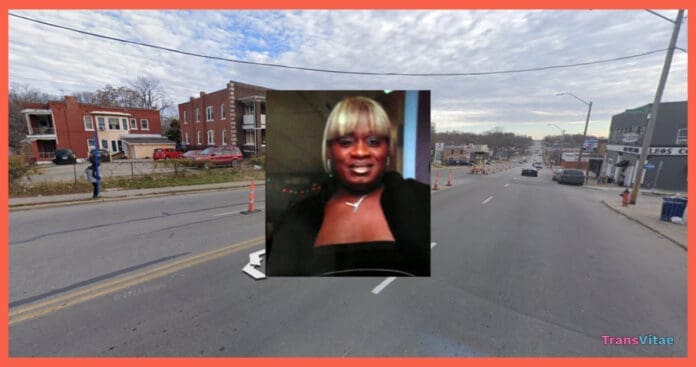In the bustling streets of Kansas City, Missouri, a heart-wrenching incident on a quiet Friday night has left a deep void in the LGBTQ+ community. Kita Bee, a 46-year-old Black transgender woman known for her vibrant spirit and profound resilience, was tragically killed in a hit-and-run crash in the 3200 block of Independence Avenue. Known affectionately by her community and friends, Kita’s untimely departure has ignited conversations about safety, visibility, and support for transgender individuals, particularly trans women of color.
Authenticity and bravery were hallmarks of Kita’s life. In a world that often shuns difference, she embraced her identity with an unapologetic boldness, reminiscent of her idol, Mary J. Blige. Kita was not just a beloved figure in the streets; she was an all-around entertainer who found joy in making others happy. Whether through singing, dancing, or her infectious laughter, she brought light into the lives of many who knew her.
However, Kita’s journey was not devoid of struggles. Like many of her peers, she navigated periods of instability and housing insecurity. Despite these challenges, Kita served as an informal mentor to many other trans women, embodying strength and perseverance. Her influence extended beyond mere survival tips—she taught her community how to maintain dignity and safety in a society that frequently overlooks their basic rights and humanity.
Kita’s connection with The Justice Project, where she collaborated with Kris Wade, the executive director, highlights the crucial role of community organizations in supporting vulnerable populations. Wade, who had known Kita for nearly two decades, remembered her as a beacon of hope for many. “Her passing was extremely traumatizing for her street family,” Wade shared, reflecting on the profound impact Kita had on those around her. Through their work, The Justice Project provided Kita with support in housing and treatment, striving to improve her quality of life amidst myriad adversities.
The circumstances of Kita’s death are a grim reminder of the perils that transgender individuals face. The hit-and-run incident, which is still under investigation, underscores the urgent need for societal and systemic changes to ensure safer communities for transgender people. Kita’s story is a poignant illustration of the broader struggles faced by transgender communities, particularly trans women of color, who often bear the brunt of violence and discrimination.
In the wake of her death, Kita’s spirit continues to resonate. Tributes have poured in, with many remembering her not only for her exuberant personality but also for her ability to remain true to herself against all odds. KC Transformations, a nonprofit advocating for the safety of transgender communities of color, honored Kita as a “Black Trans Icon,” acknowledging her pioneering efforts on Troost Avenue and her role in teaching survival and safety to her peers.
Kita’s relationship with her family, particularly her sister Raynisha and her late mother, was a source of strength and joy in her life. Their support was instrumental in her ongoing journey towards self-acceptance and empowerment. Reflecting on their bond, Wade noted, “She had a very sweet soul… I’ve got millions of memories of her… She was in her full authentic persona all the time, and that takes guts when you’re a trans person. Especially a trans woman of color.”
As the Kansas City community mourns the loss of Kita Bee, her legacy prompts a crucial dialogue on the protections and respect due to transgender individuals. It is a call to action for all of us to foster an environment where people like Kita can thrive without fear—a sentiment that should resonate not just in Missouri but across the globe.
Kita Bee’s life and her untimely death are a clarion call to all of us: to remember, to reflect, and to recommit to building a world that truly cherishes and safeguards all its people, regardless of gender identity. Her story, though marred by tragedy, continues to inspire a movement towards greater acceptance and justice for transgender individuals everywhere. In remembering Kita, we celebrate her life—a life lived boldly and with an unyielding commitment to authenticity and love.


